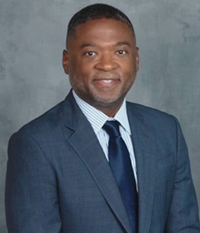

By John A. Johnson, MD, MBA, FACP, FACHE, Chief Medical Officer at the Government Employees Health Association, Inc. (G.E.H.A); ABMS Stakeholder Council Member
When I became board certified 25 years ago, it was not only a milestone, but a promise. A promise to my patients, colleagues, and myself to use my clinical expertise in internal medicine to uphold the highest standard of care. That commitment, rooted in knowledge, compassion, and dedication to service, still holds true today.
In medicine, there is no status quo. Continuous learning and quality improvement are essential to honoring the commitment that I made years ago. Medicine has changed dramatically since my initial training and board certification. New drugs, advanced technologies, modern procedures, and innovative ways of thinking about patient care have emerged and evolved. Board certification has given me a true north that I can always come back to as I strive to stay current and lead efforts to ensure patient care reflects the latest thinking, research, and innovation. Without maintaining board certification, I increase the likelihood of working from incomplete and outdated knowledge and potentially miss opportunities to provide more safe, effective, efficient, and patient-centered care.
For patients, knowing their physician is board certified can provide reassurance and establish trust. It shows the physician is committed to delivering quality care and staying up to date with medical advancements and clinical guidelines. Certification confirms the physician’s subject matter expertise and, at the same time, conveys their desire to keep learning and growing.
The value of board certification extends beyond demonstrating credibility. Studies suggest that a board certified physician’s patients experience better health outcomes, including lower mortality rates, fewer admissions and readmissions, and a more collaborative relationship with their physician. In part, this is because board certified physicians are more likely to champion preventive care, encourage shared decision-making, and follow evidence-based protocols when treating common and complex conditions. This quality-focused mindset ensures patients receive top-notch treatment, grounded in the latest research and clinical protocols.
I witness the positive impact of board certification every day. Serving as Chief Medical Officer at G.E.H.A, with more than two million health and dental benefit members nationwide, allows me to guide our clinical team toward improving patient outcomes. Being board certified holds me to a higher standard, thus elevating what G.E.H.A offers its members to better their own health and well-being and keeping our benefits in line with advances in health care.
One way we do this is by partnering with patients managing chronic conditions and those due for preventive health screenings to close their care gaps. For example, the G.E.H.A clinical team works closely with providers to help members living with diabetes to stay involved with their health through regular A1C monitoring, nutrition programs, and educational webinars. Similarly, the team collaborates with providers to ensure members receive timely screenings for colorectal, cervical, and breast cancers. For those eligible, such as rural communities in health care deserts, we also offer home colorectal testing kits. This makes screenings more accessible and convenient, key factors in enabling high-quality and appropriate care.
Underpinning the work of closing care gaps is an emphasis on ensuring members have a primary care physician to educate them, coordinate their care, and provide treatment across specialties for them. This yields a smoother, more integrated experience for our members, which supports them as they make important health care decisions throughout every stage of life.
In the end, keeping up with board certification is not only about professional development. It is also about doing the right thing for the people we serve. Quality care does not happen by accident. It requires an intentional commitment to embrace clear standards, follow best practices, and prioritize learning and improvement. While I am no longer a practicing physician, I have chosen to stay current with board certification because it gives me the credible tools necessary to identify what exceptional care truly looks like and the knowledge to implement it across clinical programs at G.E.H.A. This promise is about ensuring every patient receives the evidence-based care they deserve while fostering an environment where compassion and excellence go hand in hand.
“Quality care does not happen by accident. It requires an intentional commitment to embrace clear standards, follow best practices, and prioritize learning and improvement.”
© 2025 American Board of Medical Specialties
Read the latest issue of ABMS Insights and sign up to receive future updates about board certification.
